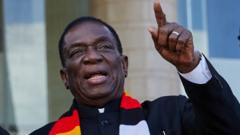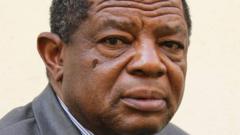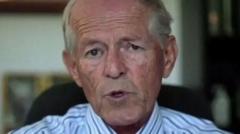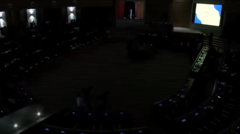Zimbabwe is witnessing heightened tensions following President Emmerson Mnangagwa's endorsement of a controversial legislation that mandates all motorists to purchase a radio licence as a prerequisite for obtaining vehicle insurance. The new fee, set at $92 (£68) annually, has provoked a significant backlash from the public and various stakeholders.
According to the government, the initiative is designed to bolster revenue for the struggling Zimbabwe Broadcasting Corporation (ZBC) amid its ongoing financial challenges. Currently, the state broadcaster also relies on government funding and advertising for income, but has struggled to collect dues linked to radio and television licenses.
Criticism has largely focused on the economic burden imposed on motorists—an issue compounded by the country's challenging financial circumstances. Leading opposition figure Nelson Chamisa has voiced strong objections, labelling the legislation "too draconian, anti-citizens and outrightly heartless." Social media platforms have amplified this critique, with users describing the new law as an "unjust assault on motorists."
Nick Mangwana, a senior official at the ministry of information, contended that the law is "necessary" and justified, aimed at ensuring a more comprehensive compliance to the licensing system. Current statistics indicate a discrepancy, with approximately 1.2 million registered vehicles in Zimbabwe, yet only about 800,000 of them are insured, contributing to the broadcasting service's financial difficulties.
The Broadcasting Services Amendment Act stipulates that insurance providers are now prohibited from insuring vehicles that lack a valid radio licence unless the vehicle owner possesses an exemption certificate issued by the ZBC. While the amendment also allows for exceptions for tourists, it aims to close loopholes that have allowed many to circumvent the fee.
Critics argue that the financial impact of the licence fee on taxpayers is disproportionate, with some alleging that the ZBC's coverage favors the ruling Zanu-PF party. ZBC has denied these accusations, maintaining its commitment to impartial reporting.
As Zimbabwe grapples with not only economic challenges but also political strife, the implementation of such policies illustrates the tension between state revenue needs and citizen welfare concerns.

















